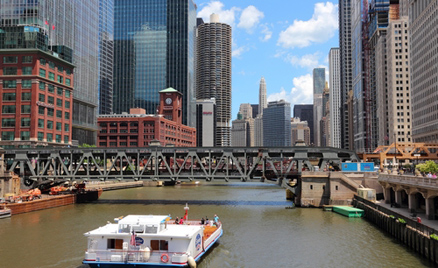Block parties
 Tupungato / Shutterstock.com
Tupungato / Shutterstock.com
A new progressive politics is bubbling up from America’s cities. The biggest pop so far has come from the “Fight for $15” movement, which has won pay hikes in more than a dozen jurisdictions and launched a new national debate about the minimum wage. But the American asphalt is also proving to be fertile ground for other big ideas, as cities lead the way on initiatives to fight climate change, expand preschool programs, and train workers.
In short, cities are stepping up to handle the problems that Washington has proved incapable of addressing. And since federal gridlock is likely to be with us for some time, Bruce Katz argues in his First Year essay, Go Local, the next president and Congress should deputize cities to tackle the major problems they cannot. It is an elegant proposal that should have all-around ideological appeal. But even here, partisan politics could get in the way, and in the long run, we cannot duck ideological conflict through devolution. Instead, cities will have to tackle America’s divisions head-on, pairing policy experimentation with political activism.
Barack Obama’s administration has been the most city-friendly in years. The president’s Chicago roots gave him and his advisers direct experience with urban politics, and he spotlighted the plight of the cities in his 2008 campaign. He was constrained in what he could deliver, however. While the 2009 economic stimulus was a major boon to urban areas, the takeover of the House by Republicans in 2010 precluded additional rainmaking. Instead, the Obama team focused on capturing and redirecting the trickles of federal urban assistance that they had. They ordered bureaucrats from various agencies to work together in reviewing applications and putting together aid packages, so cities could get the help they needed more efficiently.
Katz calls on the next administration and Congress to double down on this strategy by liberating federal grants from the many silos into which they are now split. Rather than performing gymnastics to show how a project might fit the requirements of a dozen different federal grant-makers, cities should be able to sell the idea on its own merits and get one big serving of aid to support it. This “City Deals” approach is a smart proposal for cutting through some of the “kludgeocracy” that so impedes the American state.
Katz’s recommendation reckons with the reality, pointed out in Scenario Planning by Kyle Kondik, that Republicans will likely control at least the House of Representatives after November. That means there will almost certainly not be any big new spending program for cities. Katz is optimistic, however, that Republicans would buy into the logic of restructuring federal aid to allow more transparency and devolution. After all, local control is a hallmark of conservative ideology.
The problem is that Republicans will also recognize the selling point of this policy to Democrats: what Katz calls the “realpolitik” calculation that it beefs up the nation’s liberal strongholds. While Republicans are strongly represented at the state level, they have virtually abandoned the cities to the Democrats. Among the nation’s ten largest cities, only San Diego has a Republican mayor. It is far from clear that a GOP House would agree to steer funds more efficiently to the cities controlled by their partisan rivals. Katz does offer some useful suggestions that could be probably be undertaken by executive action, such as creating an “investment statement” that lets city residents quickly see how much the feds are pitching into their area.
The bigger question is whether Congress can be persuaded to move on any of the major policy issues that cities simply cannot fix alone. One area with potential is infrastructure financing. Katz cites some encouraging, incremental progress around transit-oriented development and water systems. But of course the need (and job-creation potential) goes much further. With both sides of the aisle recognizing that American infrastructure is crumbling, there is at least hope that a new president could strike a deal with Congress for a major investment package during his or her honeymoon period (though it would take some hard bargaining to ensure the benefits are not too biased in favor of highways and rural areas.)
But urban areas also have to do their part to change the national political picture that now limits their potential. On the Republican side, the best hope that cities will get another look is probably if Donald Trump crashes and burns in November. Just as they did in 2012, Republicans may once again come to the conclusion that they must build bridges with minorities. They may even decide that it’s time to rebuild their presence in American cities, an effort that would give them a stake and a voice in what Katz calls the “new American localism.” Meanwhile, progressives can hope that cities will continue to operate as America’s new “laboratories of democracy,” not just by road-testing policy ideas but also by generating movements that can use local victories to vault higher—just as is happening with the Fight for $15.
Perhaps the most important way in which cities can remake their political environment is cultural. If the visions of urban dystopia that so dominated the American postwar landscape continue to be replaced by optimism and enthusiasm about city living, the constituency for a 21st-century national urban strategy will become impossible to ignore.
David Dagan is a Ph.D. candidate in Political Science at Johns Hopkins University. His dissertation is titled, “Building the Big House: American Institutions and the Rise of Mass Incarceration, 1980-1995.” He is also co-author of the new book, Prison Break: Why Conservatives Turned Against Mass Incarceration. Dagan’s research focuses on American political development and the comparative politics of criminal justice. Dagan is a 2016-2017 Miller Center National Fellow.